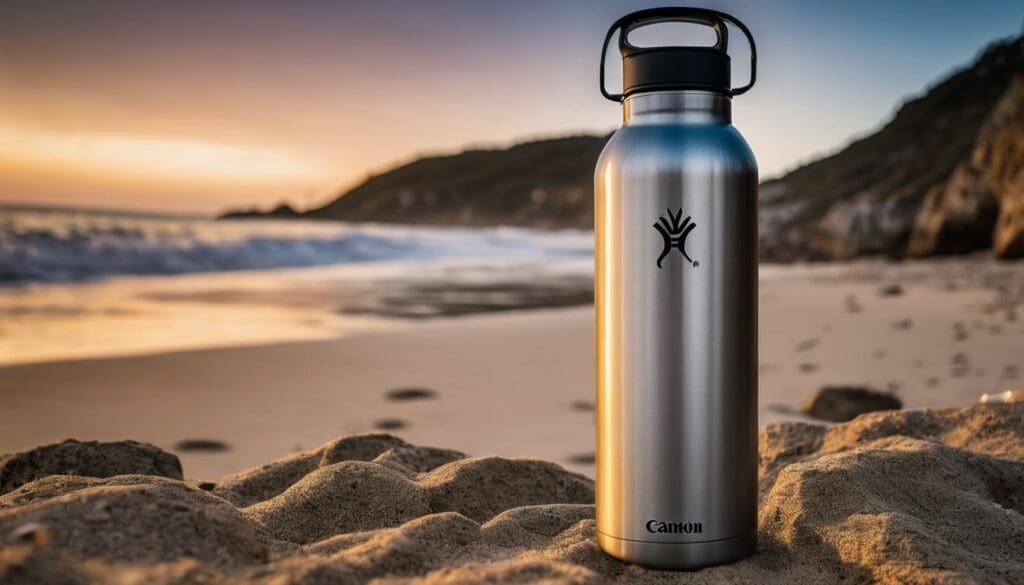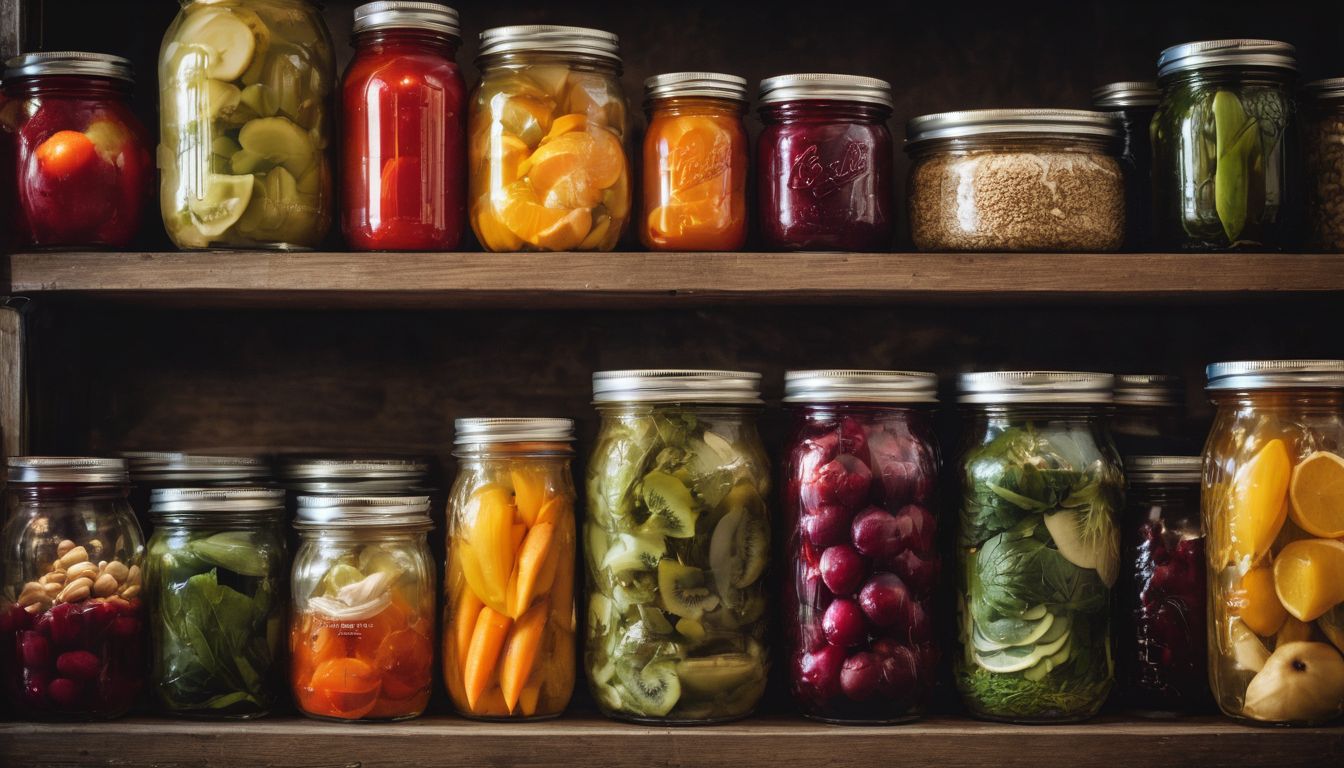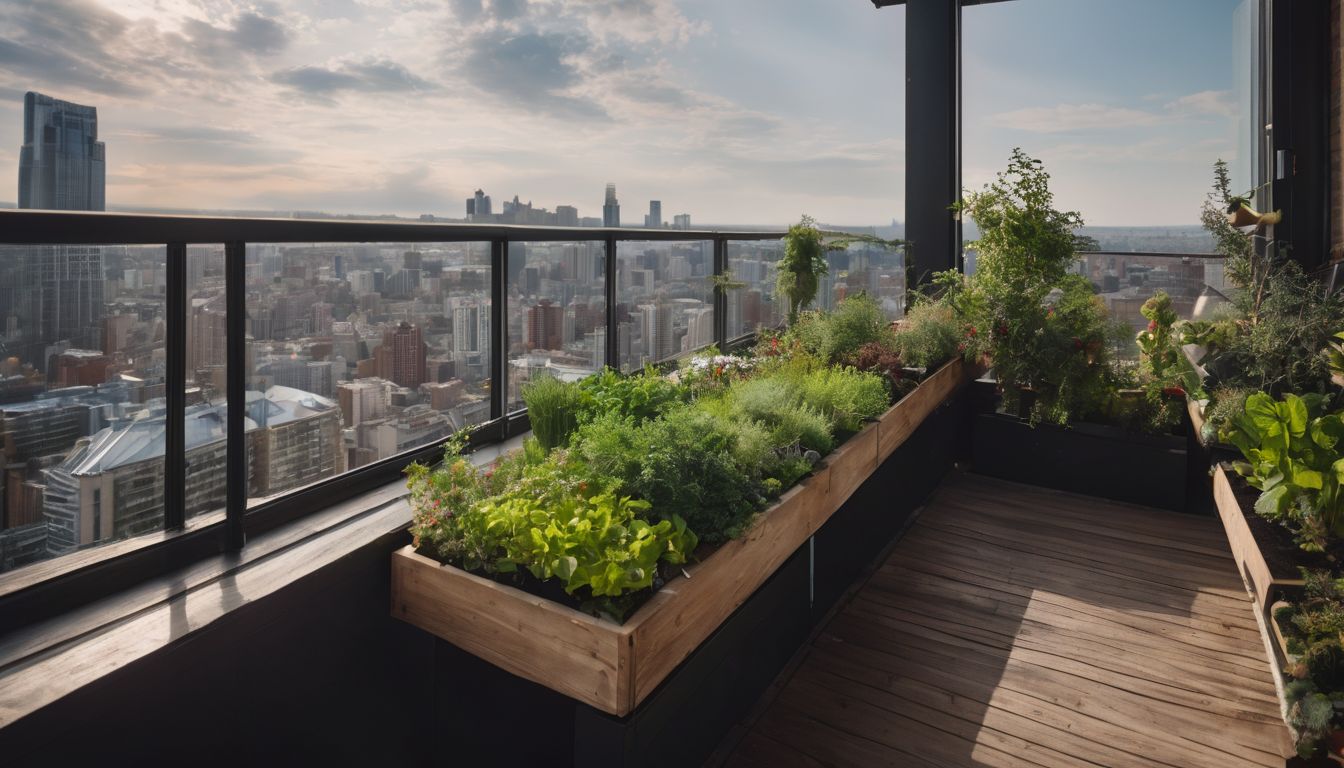Every sip matters when it comes to the plastic crisis. Our drinks alone contribute to a staggering amount of unnecessary waste each year. This post will guide you through easy swaps and changes that can significantly cut down on your daily plastic use, especially when enjoying beverages.
Let’s make a difference today!
Key Takeaways
- Switch from single – use plastic bottles to reusable beverage containers like glass or silicone options to significantly reduce waste.
- Refuse plastic straws and opt for natural, biodegradable alternatives such as bamboo or metal straws in your daily drinks.
- Reduce excess food packaging by choosing products with minimal wrapping and using refillable options for household commodities.
- Advocate for and support plastic-free initiatives within your community to promote the adoption of sustainable practices and reduction of single-use plastics.
- Embrace second-hand shopping for items like beverage containers and glass bottles, which helps give new life to pre-owned goods while cutting down on the need for new plastics.
The Environmental Impact of Plastic Use
Global plastic consumption has reached unprecedented levels, with detrimental effects on the environment. From polluting oceans and harming marine life to clogging landfills and releasing harmful chemicals, the impact of single-use plastics is far-reaching.
Global plastic consumption
Every year, millions of tonnes of plastic get produced worldwide. Much of this ends up as single-use items such as drinking bottles, packaging materials, and disposable cutlery. These plastics contribute significantly to the massive waste problem that threatens oceans, wildlife, and our own health.
Efforts to minimise plastic consumption are crucial in tackling this crisis. Reusable water bottles have become a popular alternative to their single-use counterparts, cutting down on waste one sip at a time.
Refusing plastic straws and carrying cloth bags for shopping are other simple changes with powerful impacts on reducing the flow of plastics into landfills and natural habitats.
Harmful effects on the environment
Excessive plastic consumption leads to harmful effects on the environment. Single-use plastics, such as straws and food packaging, contribute significantly to pollution and marine debris.
Plastic waste also endangers wildlife and disrupts ecosystems, posing a serious threat to our planet’s health. Additionally, non-recyclable options further exacerbate these problems by clogging landfills and polluting waterways.
Choosing eco-friendly alternatives can help minimise plastic consumption and reduce these detrimental effects on the environment. Opting for glass or silicone containers over plastic ones, using aluminium foil for food storage instead of plastic wrap, and bringing reusable shopping bags are practical steps towards a sustainable lifestyle that supports conservation efforts.
Simple Ways to Reduce Plastic Use in Daily Beverages
Choose reusable beverage containers and say no to plastic straws to reduce single-use plastic consumption in your daily beverages. Avoid excessive food packaging and opt for eco-friendly alternatives to make a positive impact on the environment.
Use reusable beverage containers
Make a conscious choice to switch from single-use plastic bottles to reusable beverage containers. By using glass or silicone options, you can significantly cut down on single-use plastics, making environmentally friendly choices.
Refusing non-recyclable options and bringing reusable shopping bags are steps towards incorporating eco-friendly alternatives into your lifestyle. Pack lunches in reusable containers and bring reusable bags for shopping to reduce single-use plastics while promoting zero-waste living.
Consider the impact of plastic waste on the environment when choosing eco-conscious habits. Bring a positive change by using biodegradable packaging and opting for plastic-free alternatives whenever possible.
Say no to plastic straws
Refuse plastic straws to cut down on single-use plastics. Bring reusable glass or silicone containers instead. By using eco-friendly alternatives, you can reduce plastic waste and support zero-waste living.
Make a difference by choosing natural, plastic-free options for your daily beverages.
Support conservation efforts by making small changes in your daily routine that contribute to a cleaner environment. Encourage others to join the movement towards reducing single-use plastics and adopting eco-conscious habits.
Avoid excessive food packaging
When purchasing groceries, opt for items with minimal packaging or those packaged in recyclable materials. Choose loose produce instead of pre-packaged fruits and vegetables. Also, consider buying bulk quantities to reduce overall packaging waste.
Pack lunch in reusable containers and avoid single-use plastic bags and wraps by using eco-friendly alternatives such as beeswax wraps or silicone food covers. By choosing products with minimal packaging and utilising eco-conscious habits like reusing containers, you can significantly cut down on single-use plastics.
Next up, “Switch to Eco-Friendly Menstrual Products.”
Switch to eco-friendly menstrual products
In addition to reducing plastic use in daily beverages, consider switching to eco-friendly menstrual products. Many traditional menstrual products, such as pads and tampons, contain single-use plastics and non-recyclable materials.
Making the switch to eco-friendly alternatives like reusable cloth pads or silicone menstrual cups can significantly reduce environmental impact while also being healthier for your body.
These sustainable options help cut down on single-use plastics and contribute to zero-waste living. By choosing natural, plastic-free alternatives for feminine hygiene products, you can further support conservation efforts and adopt eco-conscious habits in your everyday life.
Opt for natural baby toys
When choosing toys for your little one, opt for natural baby toys made from organic cotton, wood, or non-toxic materials. These eco-friendly options are free from harmful chemicals and plastics, reducing your environmental impact while providing safe playthings for your child.
Look for toys that are sustainably sourced and biodegradable to promote a healthier planet for the future.
Encourage creative and imaginative play with natural baby toys such as wooden blocks, cloth dolls, and organic teething rattles. By selecting plastic-free alternatives for your child’s playtime, you contribute to a greener lifestyle and support environmentally conscious practices in everyday choices.
Choose sustainable deodorant
Opt for natural deodorants in recyclable or biodegradable packaging. Look for brands that use eco-friendly ingredients and avoid harmful chemicals like parabens and aluminium. By choosing sustainable deodorant, you reduce single-use plastic waste and support environmentally friendly practices.
Making the switch to sustainable deodorant options is a small change that can have a significant impact on reducing plastic waste and supporting eco-conscious habits. Leading to the next point, “Tips for Reducing Plastic Use at Home,” there are more simple changes you can make in your daily life to minimise plastic consumption.
Tips for Reducing Plastic Use at Home
Choose eco-friendly refill packs, keep household cleaners in glass bottles, and shop second-hand to reduce plastic use at home. These small changes can make a big impact on our environment.
Choose eco-friendly refill packs
Opt for eco-friendly refill packs as a sustainable alternative to single-use plastic containers. Refill packs reduce plastic waste by allowing you to reuse your existing bottles and containers, cutting down on unnecessary packaging.
Look for brands that offer refill options for items such as laundry detergent, hand soap, dishwashing liquid, and other household products. By choosing refill packs whenever possible, you contribute to reducing the demand for single-use plastics while making an environmentally conscious choice in your daily routine.
When shopping for household items, consider eco-friendly refill options available at many stores or directly from manufacturers. Refill packs not only minimise plastic waste but also help promote a greener lifestyle through practical and easy-to-implement choices that support environmental conservation efforts.
Keep household cleaners in glass bottles
Store household cleaners in glass bottles instead of plastic ones. This simple switch reduces single-use plastics and ensures the safety of your cleaning products. Glass containers are reusable, easy to clean, and look stylish on your shelves.
Glass is a sustainable alternative that helps cut down on single-use plastics. It also provides a non-toxic storage option for your household cleaners, promoting eco-conscious habits within your home.
By using glass bottles, you contribute to zerowaste living and reduce plastic waste.
Reduce plastic bottles by buying reusable ones
Choose eco-conscious habits by reducing plastic bottles and opting for reusable ones. By making this simple switch, you can significantly cut down on single-use plastics in your daily life, contributing to a healthier environment.
Embrace sustainable choices and use glass or silicone containers instead of disposable plastic bottles, supporting conservation efforts.
Opt for environmentally friendly alternatives such as refill packs and bring reusable shopping bags when you go out. Say no to non-recyclable options and choose plastic-free alternatives wherever possible.
Use biodegradable utensils
When hosting events or picnics, opt for biodegradable utensils made from materials such as bamboo or compostable cornstarch. These environmentally-friendly alternatives reduce your reliance on single-use plastics and help to minimise waste.
By choosing biodegradable utensils, you can make a positive impact on the environment without compromising on convenience.
Switching to biodegradable utensils is a simple yet effective way to contribute towards reducing plastic use in daily activities. Making this small change demonstrates an eco-conscious mindset while also influencing others to follow suit.
Shop second-hand
Explore second-hand stores or online platforms to find reusable beverage containers, glass bottles, and other eco-friendly alternatives. By opting for pre-owned items, you can reduce the demand for new plastic products while giving a second life to existing ones.
This conscious choice not only helps cut down on single-use plastics but also supports sustainable consumption practices. Embracing second-hand shopping as part of your eco-conscious habits contributes to reducing plastic waste and promoting a more environmentally friendly lifestyle.
Consider supporting local thrift shops or browsing through online marketplaces for refilling stations, glass containers, and other plastic-free options as part of your journey towards embracing eco-friendly alternatives in daily beverage consumption.
Use plant-based gum
To further reduce your plastic use in daily beverages, consider using plant-based gum as an eco-friendly alternative to traditional chewing gum. Plant-based gums are made from natural ingredients and do not contain synthetic materials or plastics.
By choosing plant-based gum, you can cut down on single-use plastics while still enjoying a refreshing treat. Look for brands that offer plastic-free options and sustainable packaging, contributing to a more environmentally conscious lifestyle.
Consider opting for plant-based gum as part of your eco-conscious habits, seeking out alternative products that align with your commitment to reducing single-use plastics. Making small changes like choosing plant-based gum over conventional options helps contribute to a greener and more sustainable future for our planet.
Working Toward a Plastic-Free Future
Support plastic-free initiatives, speak out about the need for sustainable alternatives, and choose natural, plastic-free options in your daily life. Find out more about reducing plastic use by reading the full article!
Read on to discover simple ways to reduce plastic use in your daily beverages.
Support plastic-free initiatives
Engage in plastic-free initiatives by advocating for reusable products and supporting businesses that prioritise eco-friendly alternatives. Encourage local communities to adopt plastic reduction strategies through education and awareness campaigns.
Take part in beach clean-ups, river restorations, or neighbourhood recycling programmes to actively contribute to a cleaner environment. Embrace sustainable habits like utilising refillable containers, choosing biodegradable options, and advocating for policies that reduce single-use plastics.
Embracing eco-conscious practices can make a significant impact on reducing plastic consumption in daily life. Supporting plastic-free initiatives empowers individuals to be part of the solution towards a more sustainable future for our planet and its inhabitants.
Make your voice heard
Support plastic-free initiatives in your community and advocate for sustainable alternatives. Share information about the harmful effects of single-use plastics and encourage others to cut down on their usage.
Engage with local businesses and policymakers, urging them to offer eco-friendly options and reduce plastic waste. By speaking up and taking action, you can contribute to a positive change towards a more environmentally friendly future.
Choose natural, plastic-free alternatives whenever possible and inspire others to do the same. Educate your peers about the benefits of using reusable bottles, refusing plastic straws, and opting for eco-friendly options.
Choose natural, plastic-free alternatives
By choosing natural, plastic-free alternatives for everyday items like water bottles, straws, and utensils, you can significantly reduce single-use plastics in your daily life. Opt for eco-friendly options such as stainless steel or glass water bottles to cut down on single-use plastics.
Additionally, refuse plastic straws and switch to biodegradable or reusable alternatives like bamboo or metal straws. Embracing eco-friendly alternatives not only helps reduce single-use plastics but also promotes a more sustainable and environmentally conscious lifestyle.
When seeking out natural products that are free from plastic packaging and pollution, look for plant-based gum instead of non-recyclable options. Choose compostable utensils over their plastic counterparts to further eliminate unnecessary waste.
Conclusion
In conclusion, reducing plastic use in your daily beverages is essential for a sustainable future. You can make a difference by choosing eco-friendly alternatives and cutting down on single-use plastics.
Taking small steps towards using plastic-free options and supporting conservation initiatives will contribute to a healthier planet. Start incorporating eco-conscious habits into your daily routine today!
FAQs
1. Why should I reduce single-use plastics in my drinks?
Reducing single-use plastics helps you cut down on waste, protects the environment, and supports eco-friendly alternatives.
2. How can I say no to non-recyclable plastic when buying beverages?
Choose plastic-free options like glass or stainless steel containers, and always ask for eco-conscious habits at cafes by refusing straws or disposable cups.
3. What are some eco-friendly alternatives to using plastics for my daily beverages?
You can use reusable bottles, mugs, or buy drinks in recyclable packaging to help reduce your plastic use every day.
4. Can small changes really help me lessen my impact on the planet with my beverage choices?
Yes! By choosing to reduce single-use plastics and embracing ecofriendly habits, each small step contributes significantly towards a healthier planet.





